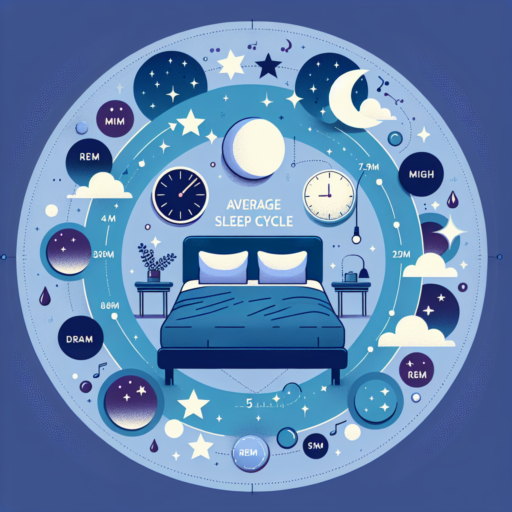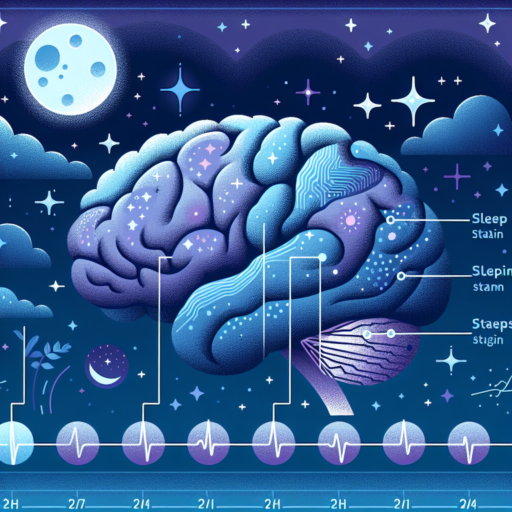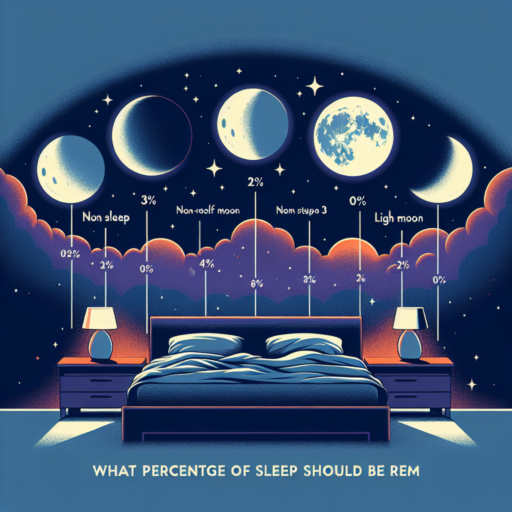No se han encontrado productos.
What is a normal healthy sleep cycle?
Understanding a normal healthy sleep cycle is essential for recognizing the importance of sleep in our overall health and wellbeing. A normal sleep cycle consists of several stages, each serving a unique purpose in restorative functions for the brain and body. The cycle is divided into two main types of sleep: Rapid Eye Movement (REM) sleep and Non-REM sleep, which includes three stages.
The Stages of a Healthy Sleep Cycle
- Stage 1: This is the lightest stage of sleep, serving as the transition period from wakefulness to sleep. It’s a short phase, typically lasting several minutes.
- Stage 2: During this stage, our bodies prepare for deep sleep through a decrease in heart rate and body temperature. This phase occupies approximately 50% of total sleep time for adults.
- Stage 3: Known as deep non-REM sleep, this is the most restorative stage. It’s crucial for physical recovery, immune system strengthening, and memory consolidation.
- REM Sleep: This stage is where most dreaming occurs. REM sleep plays a significant role in emotional and mental health by processing emotions and memories. It usually begins about 90 minutes after falling asleep.
Typically, a full sleep cycle lasts about 90 to 110 minutes, with individuals experiencing four to six cycles per night. The proportion of non-REM to REM sleep changes as the night progresses, with more time spent in REM sleep during the later cycles.
Recognizing the components of a healthy sleep cycle is foundational to appreciating the complexity of sleep. It’s not merely about the quantity of sleep one gets but also the quality and structure of these cycles. Transitioning smoothly through all stages of sleep ensures the body and mind are well-rested and rejuvenated.
How many hours is a good sleep cycle?
Navigating the intricacies of the ideal sleep cycle often leaves many pondering, «How many hours is a good sleep cycle?». The answer isn’t as straightforward as one might hope, as several factors including age, lifestyle, and individual health must be taken into account. Generally, experts suggest that adults need between 7 to 9 hours of sleep per night to function at their best.
Understanding the significance of a consistent sleep schedule is crucial. Consistency in your sleep patterns can enhance the quality of your sleep over time. It’s not just the quantity of sleep that matters, but the quality and regularity of the sleep cycle. This involves going to bed and waking up at the same time every day, even on weekends. Such regularity supports the body’s circadian rhythm, leading to a more restful and effective sleep cycle.
Moreover, the structure of sleep, encompassing various stages from light to deep sleep, as well as REM (rapid eye movement) sleep, plays a vital role in determining how rested you feel. Each cycle lasts about 90 minutes, and experiencing four to six cycles per night is deemed beneficial for overall health and well-being. It isn’t just about the hours spent asleep, but also how those hours are spent cycling through the various stages of sleep.
What percentage of sleep should be in each cycle?
Understanding the structure of sleep cycles is essential for achieving restorative sleep. Sleep is not a singular, uniform state but rather comprises several cycles, each serving different functions crucial for physical and mental health. These cycles are categorized broadly into Rapid Eye Movement (REM) sleep and Non-REM (NREM) sleep, which is further divided into three stages. The division of sleep into these cycles and stages lays the foundation for examining the ideal percentage of sleep one should spend in each cycle.
The first stage of NREM sleep, which serves as the transition from wakefulness to sleep, typically occupies about 5% of the sleep cycle. The second stage, known for its role in consolidating memories and processing information, represents approximately 45-55% of sleep. The third and deepest stage of NREM occupies 15-25%, vital for physical restoration and detoxification of the brain. The REM sleep, famous for vivid dreams, ideally makes up 20-25% of a night’s sleep. This stage plays a crucial role in emotional regulation and memory consolidation.
Alterations in the percentages of each sleep cycle can reflect or lead to sleep disorders and affect overall well-being. It’s important to note, however, that these percentages can vary slightly based on age and individual sleep needs. Adolescents and young children, for instance, may require more time in the deep stages of NREM for growth and development. As such, understanding the ideal distribution of sleep cycles is more than a matter of numerical precision—it’s about tuning into one’s own body and acknowledging the changing demands it may present over time.
Which is better, REM or deep sleep?
Understanding the differences between REM (Rapid Eye Movement) and deep sleep stages is essential in recognizing their unique benefits to our health. Both REM and deep sleep serve crucial roles in our overall well-being, but their impacts vary significantly.
Significance of REM Sleep
In REM sleep, the brain is almost as active as it is when you are awake. This stage is paramount for cognitive functions such as memory, learning, and emotional regulation. During REM sleep, the brain processes and consolidates information and experiences from the day, which is critical for memory formation and problem-solving skills. It’s also during this phase that most dreaming occurs, which plays a role in processing emotions and experiences.
Benefits of Deep Sleep
Deep sleep, or slow-wave sleep, is the most restorative sleep stage, allowing for the body and brain to rejuvenate. It’s during deep sleep that the body repairs tissues, builds bone and muscle, and strengthens the immune system. This stage also supports growth and development, especially in children and adolescents. Moreover, deep sleep contributes to energy restoration and the regulation of key hormones that manage appetite and growth.
Comparing REM and deep sleep highlights their respective roles in maintaining both mental and physical health. While REM sleep is crucial for brain functions such as learning and memory consolidation, deep sleep is key to physical recovery and health. Each stage of sleep plays a vital part in ensuring a balanced and restorative sleep cycle.




